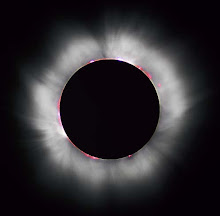75 years ago this
week a miracle occurred. When Hitler’s Army invaded France his forces had the
Belgian, British and French armies virtually surrounded. Over 300,000 allied
forces were pressed on every side by heavy attacks and far outnumbered in the
air. They were cut off from food and ammunition. Their sole line of retreat was
to a single port. There would only be approximately two days to evacuate 45,000
troops before the Germans would be able to block the escape route. The whole
root and core and brain of the British Army which would later play a crucial
role in the allied victories in North Africa, Italy, France and Germany was
about to perish or be led into captivity. The British were about to experience
the greatest
military disaster in their history.
The British needed a miracle. The British Parliament declared that May
26, 1940 would be a national day of prayer. Prayer services for the safety of
the troops were held in churches and synagogues throughout the United Kingdom
including a service at Westminster Abbey that was attended by King George VI.
At approximately the same time that the British Parliament was announcing a
national day of prayer, Hitler issued an order for the German tanks to halt. Hitler’s
Halt Order has been called one of the great turning points of WWII and one of
Hitler’s most critical mistakes. Historians have been debating for decades why
Hitler issued the Halt Order. Why Hitler issued the Halt Order is a mystery to
this day.
On May 26, 1940 the ocean was extremely calm and at 7PM Churchill
formally announced the start of the naval evacuation of Dunkirk. After two days,
only 25,000 allied troops were evacuated. There were problems with the large
naval boats being able to make a close approach to the beach. An emergency call
went out and approximately 400 small craft able to make the journey to France
volunteered to help. Many of the 400 small boats were manned by civilian
volunteers – the same people who had prayed in the churches for the safety of
their troops. The 400 small boats went through heavily mined sea lanes; they
went past shore batteries that were firing deadly artillery; they went through areas
that were patrolled by submarines and fast surface craft with their torpedoes; they
went into the port of Dunkirk that was being heavily bombed and strafed by air.
The fighting was so fierce that the British had withdrawn their destroyers
since so many had been lost. By the time the 400 small boats arrived, the port
facilities at Dunkirk had been destroyed. The 400 small craft formed a ferry
service between the beach and the naval transports. In some places the boats
were lined up to form floating bridges for the troops to make their way to the
transports. The allies lost 1 out of every 4 naval vessels that were used in
the rescue.
The evacuation of Dunkirk ended on June 4, 1940 and resulted in the safe
evacuation of 338,000 allied troops. On June 4, 1940 Winston Churchill
delivered one of his most famous speeches “We Shall fight on the Beaches.” That
speech starts with the phrase “we shall go on to the end.” Without the safe
evacuation of the 338,000 troops Churchill might never have made that speech
since the troops needed to go on to the end would have been POW’s. Many of the
evacuated allied troops fought in the subsequent battles of WWII and were
crucial in the defeat of Germany. Without them the war might have been very
different - the British might have agreed to an armistice with Germany; the
North African, Italian and Normandy invasions might have been delayed or never
occurred; Hitler might not have been defeated.
Winston Churchill called the evacuation a “miracle of deliverance.”
The turning point in WWII occurred on May 26, 1940 when the people of the
United Kingdom turned to God in prayer as their only hope to save their army.
If you need a miracle remember - “Ask, and it will be given to you.”
Matthew 7:7
J. Clontz – Editor
of the Comprehensive New Testament





No comments:
Post a Comment